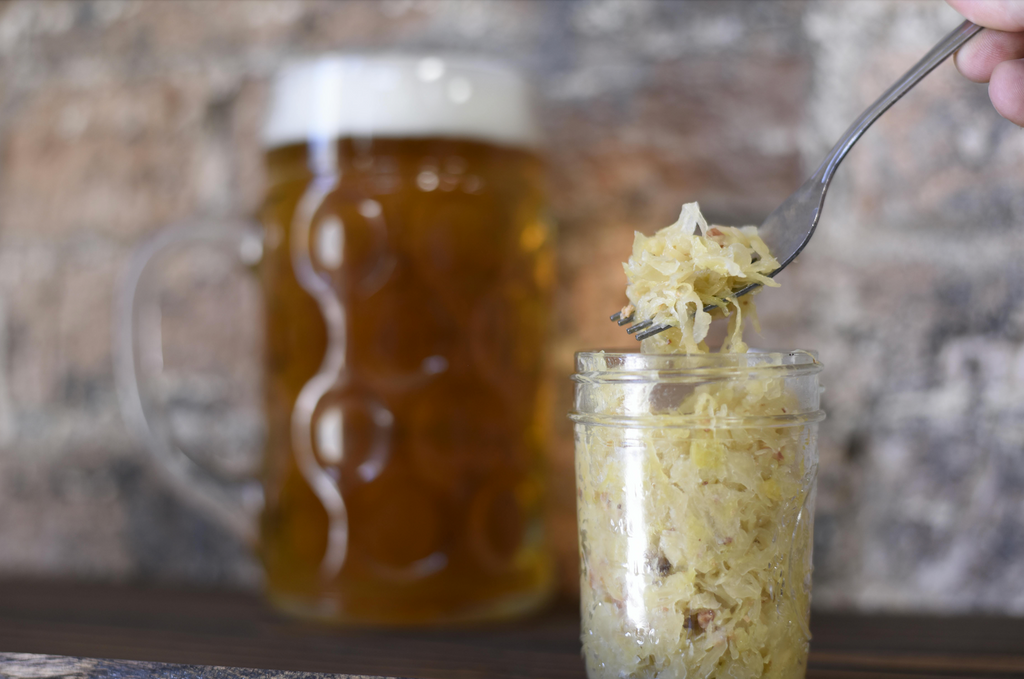On this blog, we’ve reported on a number of scientific breakthroughs that back the importance of having a balanced gut microbiome. This week we’d like to bring you a quick rundown of two of the latest studies.
Both appear to add more grist to the mill of supporters of eating probiotic-rich food to help balance gut bacteria in favour of the “good bugs”. Those that promote positive physical and mental health consequences.
While neither “prove” the connection between a balanced gut microbiome and mental and physical health, they do appear to add more weight to the advantages of a high in probiotics and prebiotics.
Let’s check them out.
Study One: What do loneliness and wisdom have to do with gut diversity?
A fascinating gut study has been carried out by researchers at the University of California San Diego School of Medicine. This appears to suggest wisdom and loneliness are influenced by the composition of the gut microbiome. The findings highlight the well-known link between the gut and the brain, known as the gut-brain axis. Previous research shows this may influence the brain’s function in areas as diverse as moods, decision-making and other cognitive and emotional responses.
This latest study though, suggests the diversity of the gut flora may influence whether or not we are more inclined to wisdom and/or loneliness.
“We found that lower levels of loneliness and higher levels of wisdom, compassion, social support and engagement were associated with greater phylogenetic richness and diversity of the gut microbiome,” said first author Tanya T. Nguyen, PhD, assistant professor of psychiatry at UC San Diego School of Medicine.
They suggest a more diverse gut microbiome may help resist certain pathogens
“Bacterial communities with low alpha-diversity may not manifest overt disease, but they may be less than optimal for preventing disease. Thus, lonely people may be more susceptible to developing different diseases.”
The authors make clear it is “exploratory” and further research is required to clearly define the links between gut health and loneliness and wisdom suggested in the findings.
Study Two: Finnish study uses gut health diversity as a possible link to better health
Meanwhile in Finland, a collaborative study between the University of Turku and the Finnish Institute for Health and Welfare has completed the world’s largest-ever population study on gut microbiota. According to the University press release, the participants’ gut microbial flora was examined from the start of the research in 2002.
“The composition of the research subjects’ gut microbiota was analysed from stool samples collected in 2002. The researchers had access to follow-up data on the subjects’ mortality until 2017, i.e., close to the present day,” said Teemu Niiranen, Professor of Medicine at the University of Turku, Finland who added it may be possible to predict mortality based on this data.
“Many bacterial strains that are known to be harmful were among the enterobacteria predicting mortality, and our lifestyle choices can have an impact on their amount in the gut. By studying the composition of the gut microbiota, we could improve mortality prediction, even while taking into account other relevant risk factors, such as smoking and obesity. The data used in this research make it possible for the first time to study the long-term health impact of the human gut microbiota on a population level.”
How to increase your probiotic intake for an improved balanced gut microbiome
One of the most effective ways to boost the number of probiotics is to eat fermented foods. Examples of these are sauerkraut, kimchi, yoghurt, pickles (those made with salt and water, not vinegar), miso and tempeh. Fermented drinks include kombucha, kefir and apple cider vinegar.
Then there’s the oft-forgotten flip side of nurturing a balanced gut microbiome. That is to eat a diet high in prebiotics. According to the Mayo Clinic, prebiotics act like the fertiliser that grows the good bugs in our gut lining, ensuring a balanced gut microbiome. A good prebiotic diet is one that contains high fibre. This is the dietary fibre that is digested by the probiotic microbes in our gut.
“Prebiotics are found in many fruits and vegetables, especially those that contain complex carbohydrates, such as fibre and resistant starch. These carbs aren’t digestible by your body, so they pass through the digestive system to become food for the bacteria and other microbes.”
At Gutsy Ferments we believe that, while eating fermenting products are important to help maintain gut health, you should do so as part of a balanced diet. Currently, advice by the Australian Government’s health authorities is to eat as wide a range of nutritious foods as possible. This page from their website has links to several health resources, all promoting a balanced, nutritious diet. We recommend you take the time to check these guidelines as well as asking the advice of your nutritionist or health professional before radically changing your diet.
We’re always glad to talk about fermenting. Contact us at Gutsy Ferments at our website, or through our social media (Facebook and Instagram). Our book Forage, Ferment, Feast will also give you tips on restoring gut health with some wonderful fermenting recipes.




